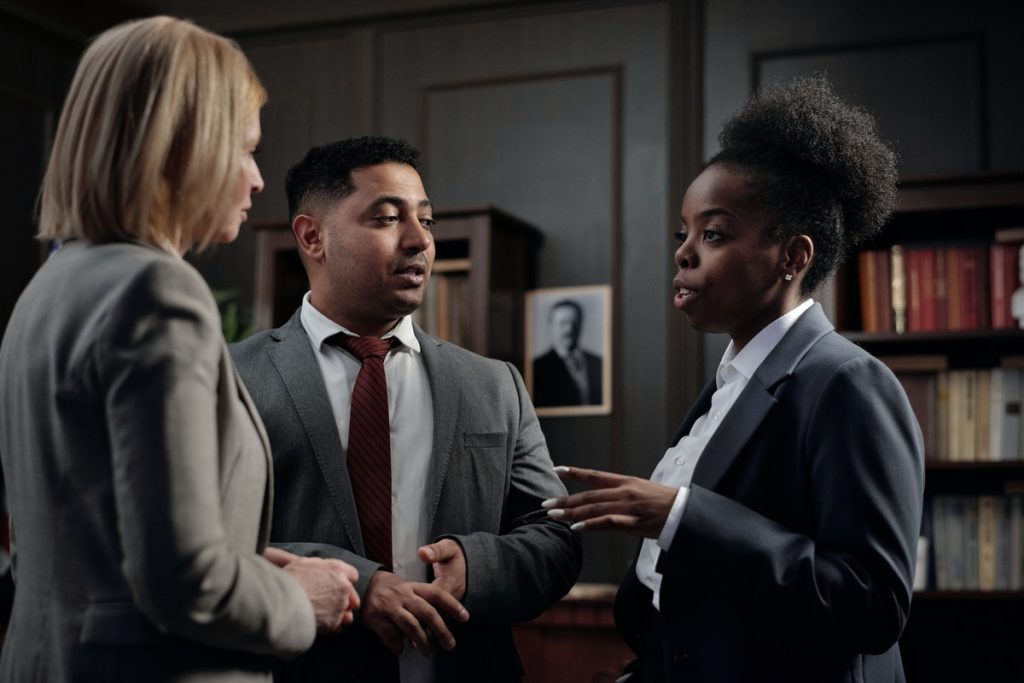If you are part of a government, non-profit, or non-government organization dedicated to helping individuals in struggling communities, then you know that there are many legal issues they face. The burden of these legal issues is often compounded by the fact that they may not have access to proper resources such as lawyers or other legal services. Here are the common legal issues faced by people in struggling communities:
Lack of access to proper legal representation
One of the most common and pressing legal problems people in struggling communities face is access to proper legal representation. Without an attorney or lawyer’s assistance, it can be difficult for them to navigate the complicated web of laws and regulations surrounding their situation. This lack of access to proper representation can put them at a disadvantage when dealing with court proceedings and paperwork associated with their case.
To help resolve this issue, many government and non-profit organizations provide various forms of legal assistance to those in struggling communities. This can include pro bono services, consultations with attorneys or lawyers, and even financial support for court costs or other expenses associated with the legal process. You can help make these resources available to individuals in your community by supporting these organizations and partnering with them to provide legal assistance.
Unstable employment and housing conditions
Many people living in struggling communities often experience unstable employment and housing conditions due to poverty, racism, and other socioeconomic factors. These unsafe conditions can lead to numerous legal issues, such as eviction notices and wage disputes. This is why it’s essential for organizations providing support services to these individuals to understand the potential legal implications of these situations.
Steps that can be taken to address these issues include providing job training, housing assistance, and other support services. You can also work with local advocacy groups and legal organizations to help educate people in your community about their rights under the law, as well as provide education on how they can access legal resources when needed. You can also advocate for policy changes that will help create more stable conditions for those living in struggling communities.
Discrimination
People in struggling communities may also face discrimination on a daily basis due to their race, gender identity, sexual orientation, religion, age, or disability status. This discrimination can manifest itself in various forms ranging from unequal pay or unfair treatment at work to being denied access to certain services or benefits. It’s essential for organizations providing support services to be aware of these potential instances of discrimination so they can help protect those affected from further harm or injustice.
Some potential strategies for addressing discrimination in struggling communities include promoting policies that promote equality and diversity, providing education and training on how to recognize and report instances of discrimination, and working with local advocacy groups or legal organizations to develop resources for dealing with these issues.

Inadequate resources for education and healthcare services
Another issue people living in struggling communities often face is inadequate resources for education and healthcare services due to poverty or systemic racism. This lack of resources can prevent them from getting the education they need or accessing necessary healthcare services, which can lead to further hardship down the road if not addressed quickly and correctly. Organizations providing support should be aware of this issue so they can provide appropriate assistance if needed.
Some things that can be done to help address this issue include advocating for increased funding or support from local, state, or federal governments. You can also partner with schools and healthcare providers in your community to help ensure that all individuals have access to the educational and healthcare resources they need. Additionally, you can promote policies and practices that support equal access to these vital services, regardless of someone’s socioeconomic status.
Domestic violence / Spousal abuse in households with low income
Domestic violence or spousal abuse often occurs in households with low incomes and can lead to a number of legal issues, such as restraining orders and divorce. This is why it’s essential for organizations providing support services to these individuals to understand the potential legal implications of situations.
You can help address this issue by providing education and resources on domestic violence, such as information on local support groups or legal resources that can provide assistance. You can also partner with experienced divorce attorneys to help individuals facing these issues navigate the legal system and access the support they need. A good divorce lawyer can also provide guidance on how individuals can protect themselves and their children from any domestic violence or abuse in the future.
As you can see, there are many common legal issues that people living in struggling communities must contend with on a daily basis. It’s important for government organizations, non-profits, and non-government organizations alike to recognize these issues so they can provide adequate resources and assistance where needed in order to ensure that everyone has access to justice no matter what community they come from. With the right support system in place, you can help level the playing field for those who need it most!



